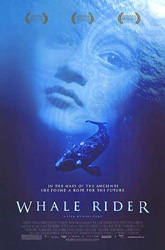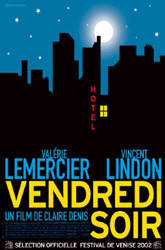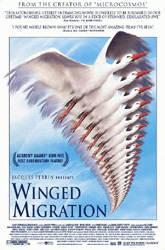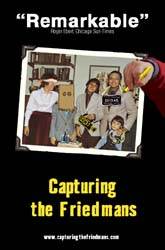 Director: Starring: Release: 30 May 03
|
Together BY: DAVID PERRY Cheng Liu (Peiqi) brings his 13-year-old son Xiaochun (Yun) to Beijing from their small Mainland China village with the promise of making his son a violin impresario under the teachings of one of the cityís many internationally recognized classical music masters. With all the money they have tucked away into his ragged hat (it wonít take long to guess what will happen to it), Cheng pesters the reclusive Prof. Jiang (Zhiwen) into mentoring Xiaochun. Of course, when the teacher is as off-base as Jiang, the lesson plan might just turn out to be violin practice mixed with doing the chores of the dirty home. Enter Lili (Hong), an enigmatic woman moving about the story without any real established purpose. The film is evidently crafted as a family film, which may explain why Liliís occupation is never fully developed: all the hints seem to say that she is a high-priced call girl, in the least a gold-digger. Despite the filmís occasional waltzes with romance, her place in the story is strong, remaining something of a conscience for both Cheng and Xiaochun. Although she never fully hits her developmental potential, she is integral and Hong is adept at making this coyness come alive without allowing the writingís shortcomings to leave her too distant. But there is almost always something amiss in Together, which seems to have the best intentions but the worst follow through. Although itís not a bad film by any measurement, it is rather mediocre for the normal output of Chen Kaige, a filmmaker whose terse little historical dramas have long been some of the better films exported from China. Although none of his works have yet been at the same level of artistry as Farewell, My Concubine, some of his subsequent releases (The Emperor and the Assassin, Temptress Moon) have been at least worthy of his attention. However, considering that my knowledge of his films is limited to those receiving an American release, something seemed wrong with his 2001 feature, The Road Home, a family drama starring Zhang Ziyi directly after her appearance in Crouching Tiger, Hidden Dragon. That film was hampered by an unending barrage of melodramatic sniveling and an apparent interest for Kaige to speak to the American art house audience to buy into the pretty images and the soapy dramatics. Together shares this with The Road Home, which finally collapses under the pressure of it all by the end. Things are worsened here, though, with a score that is meant to be complimented by the violin music but only borders on sloppily over-dramatizing it at key moments of immense emotional impact. Itís all so pushy and labored that one cannot help but feel tired just watching people hug in this film.
Worse yet, the film seems unwilling to even credit any historical Chinese
music, choosing instead to turn to Western standards. Tchaikovsky peeps his
head up occasionally, which is nice to hear, but feels alien in a film
about the Chinese music world. The Turandot Project, a documentary on the
Chinese production of the Italian opera, featured more pan-Asian culture. If
those weepy art house denizens, clad with tissues in hand, are willing to
accept that China is the land of two-hankie familial escapades, kookie
teachers, chaste prostitutes, and the performances of Itzhak Perlman, then
more power to them. Iíll just be elsewhere, waiting for Ang Lee to come back
to his senses and collaborate with Yo-Yo Ma again. |
|
| ©2003, David Perry, Cinema-Scene.com, 27 June 2003 | ||







